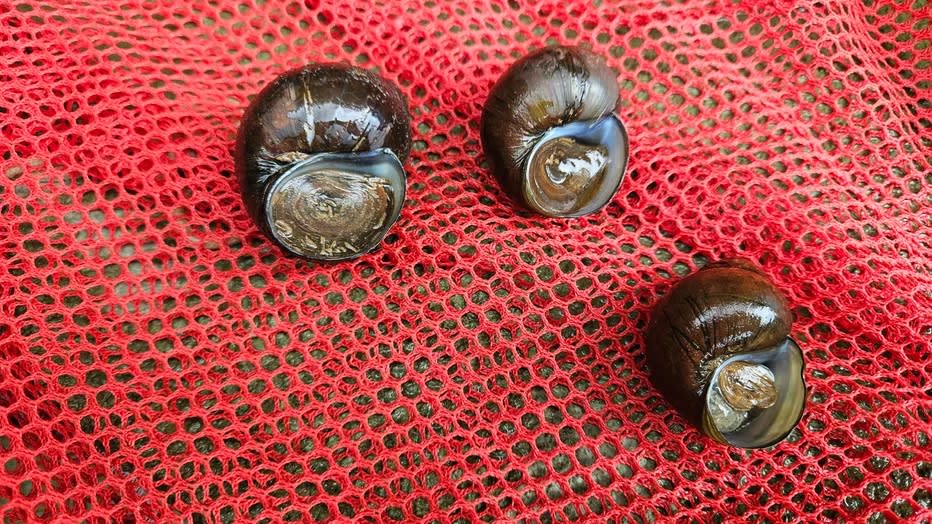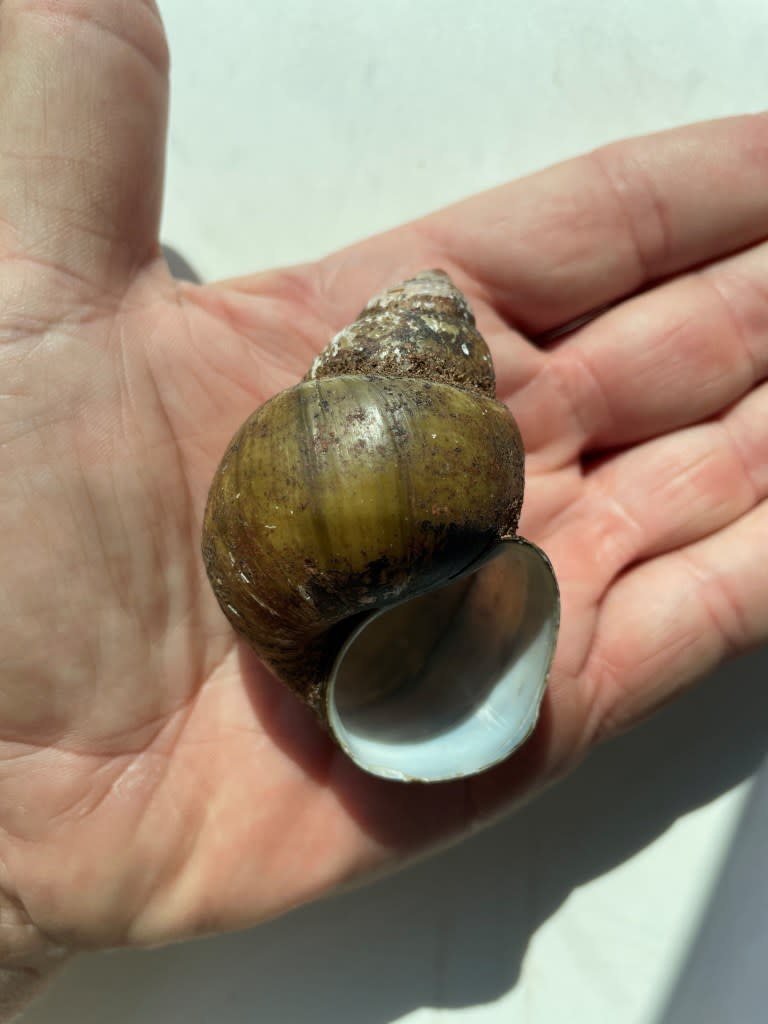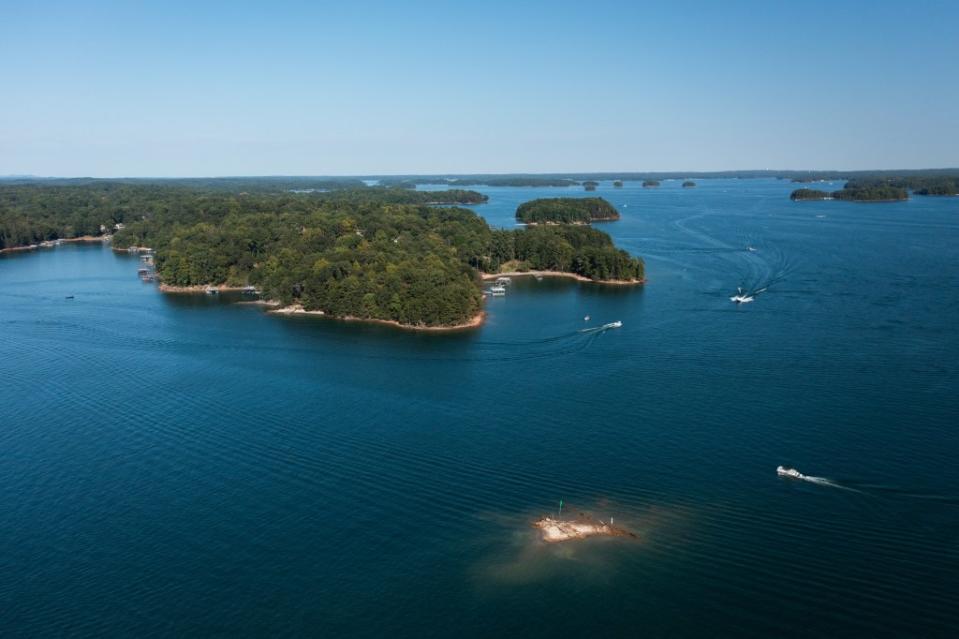Invasive Asian ‘mystery snail’ surfaces in Georgia, experts issue warning over parasite-carrying insect

It’s spreading at a lot faster than a snail’s pace.
As if the US Southeast wasn’t inundated with enough invasive critters from Asia: A breeding population of Chinese “mystery snails” has surfaced in a Georgia lake, prompting fears that they could spread parasites and damage property, per an advisory by the Georgia Department Of Natural Resources.
This particular colony was discovered in Lake Lanier during a water sampling operation.
“While we initially hoped that this was an individual specimen found on Lanier, further investigation indicated that this is a viable, reproducing population of snails,” said Jim Page, WRD Aquatic Nuisance Species Coordinator.


These aquatic critters — which take their name from the fact that females give birth to “fully developed snails” that “mysteriously” appear — are present in several lakes throughout Georgia.
It’s yet unclear how the corkscrew-shaped gastropod infiltrated this latest water body.
However, the wildlife official surmises that they could’ve either been escaped pets — despite the fact that owning live snails is illegal in the Goober State — or escaped from a food market.
The Chinese mystery snail is a popular food item among Chinese gourmands, who prize the critter for its high protein content.

Interestingly, the invader actually first discovered in the US in 1892 at a California seafood restaurant, before appearing in Massachusetts in 1915.
Wildlife officials fear that the aquatic slime balls could cause “significant ecological and economic impacts across the state,” per the PSA.
These include damaging boats, obstructing access to water bodies and ravaging ecosystems by out-competing indigenous wildlife.
These invertebrates also die off en masse, befouling beaches and coastlines.
In addition, mystery snails carry trematode parasites found in native mussels and can transmit human intestinal flukes, although there have been no reported cases of infection in the US.
The olive-colored critters — which grow to three inches long — are identifiable by their coiled shell and “operculum (”trapdoor”) covering the opening, which is missing when the snail is dead and the shell is empty,” the Minnesota Department of Natural Resources described.
While there are currently no effective control measures for mystery snails, experts have outlined several ways people can mitigate their spread.
“Prevention continues to be our best tool in fighting the war on invasive species, and prevention is only achieved with the help of the public,” said Page. “Whether it’s taking time to thoroughly wash down your boat, trailer, and fishing gear after each outing on the water; choosing to not dump aquariums; or simply not intentionally releasing non-native species into waterbodies where they did not previously occur are just a few ways you can help. Let’s protect our waters!”

